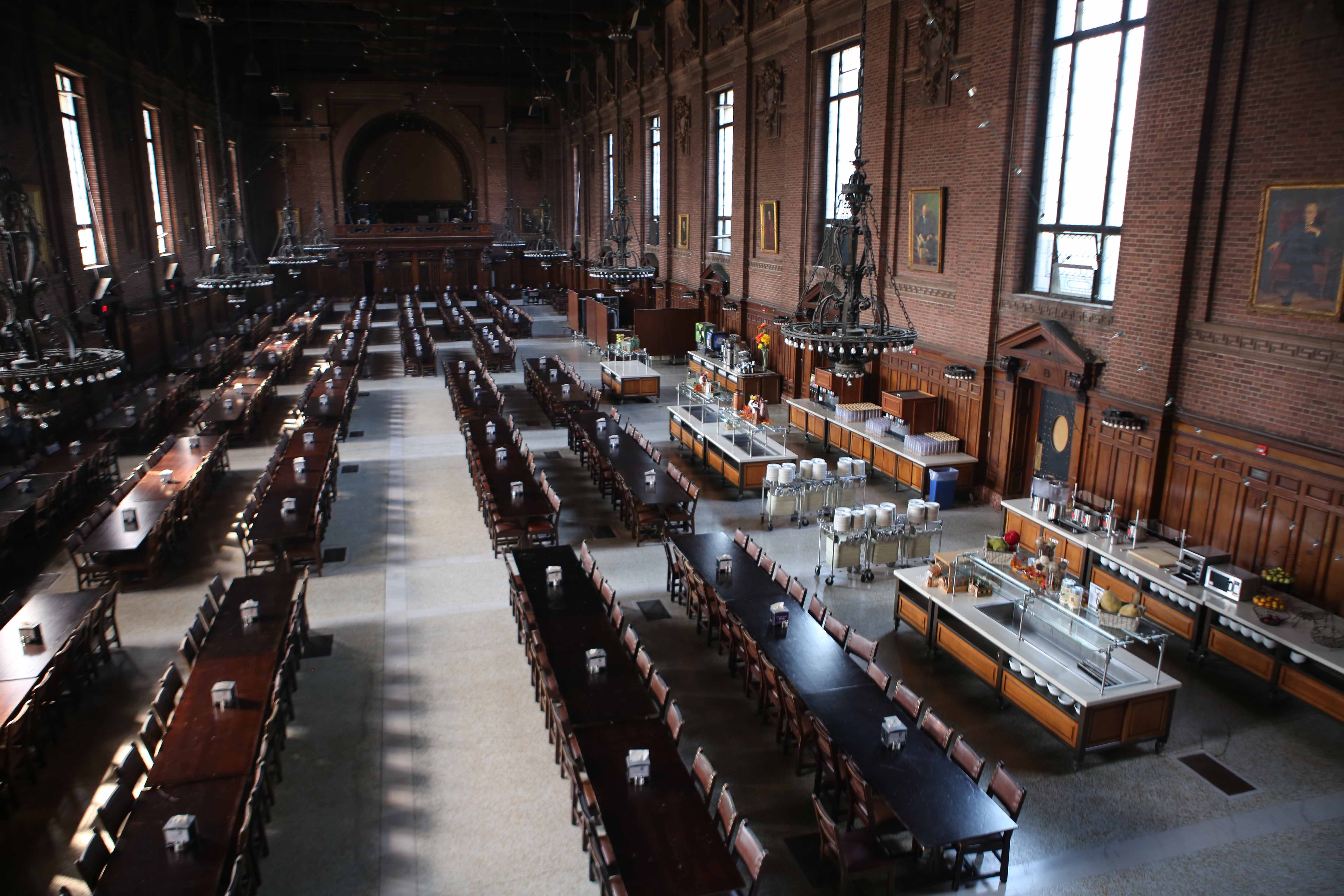
For a national fellowship in its first year of operation, the Schwarzman Scholars selections committee featured a lot of heavy hitters.
The panel, which conducted interviews for semifinalists in major cities worldwide, was composed of CEOs, university presidents, former heads of state, nonprofit executives, journalists and other high-profile leaders. But this level of access to the movers and shakers of the world may be typical for Schwarzman Scholars, continuing once the students enroll at Schwarzman College at Tsinghua University in Beijing next fall.
“The fact that [Stephen Schwarzman ’69]’s behind this program was one of the critical reasons I did it,” said Hui Kay Teo ’16, a member of Schwarzman Scholars’ inaugural class. “He just knows so many people.”
As a business magnate, Schwarzman’s influence and network of connections will put the scholars in contact with people they would otherwise not have the chance to meet, Teo said. Schwarzman, who in May donated $150 million to Yale for a new, state-of-the-art student center, is chairman and CEO of the private equity firm The Blackstone Group and has a net worth of $12.9 billion, according to Forbes.
Schwarzman established the scholarship in 2013, drawing inspiration from the Rhodes Scholarship at Oxford University. As Schwarzman Scholars, 111 students will be given full funding next year to pursue a one-year master’s degree in either public policy, economics and business or international studies at Schwarzman College, a residential college similar to those at Yale being constructed at Tsinghua University specifically for the program.
New fellowships of this kind are established rarely. Yale’s Director of National Fellowships Kate Dailinger said the last similar program may have been the Gates Cambridge Scholarship, which was founded in 2000 to encourage students to pursue the mission of the Bill and Melinda Gates Foundation of global development and public advocacy.
Each national scholarship differs slightly in their overall purposes, but Dailinger said a large part of each of them is helping students build a community of like-minded and ambitious individuals around themselves.
“The Schwarzman Scholars program and many other scholarships are very much about building connections with people, in addition to the academic experience,” Dailinger said.
For Teo, these connections may constitute as much as 50 percent of the value in participating in a program like Schwarzman Scholars, she said, adding that many global leaders often pass through Beijing. Teo also said the scholars would have access to highly prized internships as a result of Schwarzman’s prominence.
Corey Meyer LAW ’18, another new Schwarzman Scholar, said that while it will not be possible to weigh the benefit of these connections against the quality of the program’s academics, Schwarzman’s personal network has already had a positive impact on the students simply by making the scholarship possible.
Christine Anderson, a spokeswoman for Schwarzman Scholars, said Schwarzman is intimately involved with the development of the program and, among other concerns, will focus on bringing high-level people to come and speak to the scholars. She added that because of the relatively small number of scholars — 111 in total — students will have a chance to interact directly with visitors when they come to the college. This year, five current or former Yale students were selected to be Schwarzman Scholars.
Anderson said the organization had already arranged a long list of speakers for the students, though she was not yet releasing their names. She did say, though, that individuals mentioned include Larry Summers, former U.S. Secretary of the Treasury and former president of Harvard University, and Niall Ferguson, a historian who has been named one of Time Magazine’s most influential people in the world.
Though the curriculum for the program is designed to be highly rigorous, it only lasts one year, while the Rhodes Scholarship and its counterparts are generally two years long. Teo said this is amenable to students in the program who are pursuing business and would like to get started on their careers as soon as possible. She added that the content of her courses — as one of the students pursuing the business and economics track — would be more similar to those found in an MBA program, which are more focused on leadership development.
Students will also be paired with mentors and have ample opportunities for internships, Anderson said.
Skyler Ross ’16, who was selected to be a Marshall Scholar in December, said that while connections formed within national scholarships are important, relationships with the citizens of the host country also carry significant weight. He noted that the Marshall Scholarship places great emphasis on ambassadorship and learning about the host country. The Marshall Scholarship funds American students for graduate study in the United Kingdom.
Teo and Meyer also spoke to the importance of forming ties with those living in the region where they will study. Teo said one of the factors that makes Schwarzman Scholars unique is its focus on bridging relationships between the Eastern and Western worlds.
“I am hoping the program will offer me a greater understanding of the Chinese economy, political system and Chinese social values alongside lifelong friendships with ambitious, intelligent and hardworking folks from around the globe,” Meyer said.
Of the 111 Schwarzman Scholars, 44 percent are from the United States, 21 percent are from China and 35 percent hail from the rest of the world.







